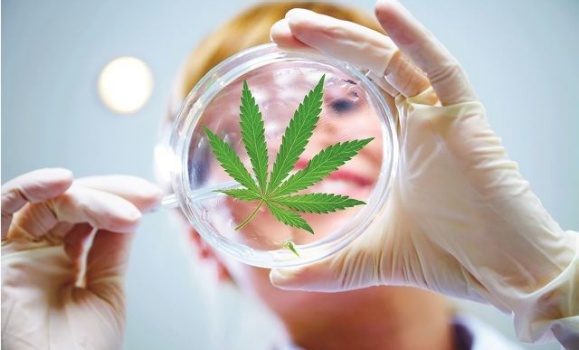News
» Go to news mainOPINION Marijuana: Judgement can preclude an honest dialogue in healthcare

Alec Falkenham is a Dalhousie Medical School student (Class of 2020).
Abstract
There are some topics in which medicine has a more cohesive and consistent message, but thus far, my experiences in medical school have suggested that marijuana isn't one of them. For some, it's a harmless drug with tremendous potential and for others, comparable to opioids. The discussions between physicians and patients regarding marijuana can be strongly influenced by ideologies in either direction, potentially undermining our ability to have an honest dialogue with patients. I explored this discussion through a combination of personal experiences in medical education and by sharing terminology and concepts that may be valuable in a patient-physician dialogue.
Experiences in Attitudes Toward Marijuana
Marijuana, or cannabis, is a contentious issue in medicine; regulatory bodies, physicians, researchers, and patients can and often do take polarized, emotional stances in favour or against marijuana. If we take a step back from our biases, then perhaps we can have more fruitful and informative discussions with patients about their use.
Early in medical school, I observed a back-and-forth discussion between two physicians on patients using marijuana for inflammatory bowel disease (IBD). One argued that, despite some patients reporting a symptomatic benefit, there wasn’t enough evidence marijuana was having an “effect” (i.e. no changes in ESR or CRP) and implied that some of these patients just liked getting high. The second physician challenged the first on who we were as physicians to suggest that patients with debilitating ailments like IBD were somehow deceiving us so they could use marijuana. He noted that, while some of our diagnostic tests may not detect changes, that doesn’t necessarily equate to a lack of change. Rather, if a patient reports improved symptoms and in turn, doesn’t come into hospital as often, in some regards, isn’t that a success?
On one hand, the first physician was not wrong in stating that he didn’t have evidence to support marijuana use for IBD, but neither was the second physician in acknowledging our limited understanding with a sense of optimism. I would, however, argue that had the patients being discussed been present for the discussion, they may have felt differently about how they discuss marijuana with their physicians. After all, were their physicians more like the first or second physician in the discussion? And what contributes to a productive discussion on marijuana between patients and physicians?
What I have learned about discussing marijuana with patients
Medicine has struggled with trust and honesty in discussing substance use, notably alcohol, but also marijuana. There is evidence that patients generally are not accurate about their alcohol intake. Using alcohol as an analogy, alcohol consumption, despite the obvious issues surrounding judgement and honesty, is relatively easy to track because the alcohol by volume in spirits usually tops out at around 40%. But imagine trying to discuss alcohol consumption with a patient if neither of you knew the alcohol by volume – that’s been a hurdle to discussion around marijuana consumption. In addition, marijuana has changed a lot over the last few decades – that’s made understanding usage much more difficult and highlights the importance of honest, non-judgemental, educational dialogue.
During an elective in adolescent addictions counselling, marijuana was a frequent guest, but harm reduction approaches were predominantly favoured unless marijuana was identified as a risk factor in psychosis. Indeed, growing evidence supports that marijuana use can unmask schizophrenia in those with predispositions, but the debate on causation has yet to be settled. This was an important talking point when discussing marijuana in the context of psychosis because patients could relate via their own experiences. In bringing honesty to the discussion, I observed many more productive conversations between physicians and patients about marijuana use.
In discussing marijuana with adolescents, I found there were 5 consistently useful questions asked, which could be generalized to any age:
1. History/family history of schizophrenia/psychosis?
2. How much and how often?
3. What is it/what does it contain?
4. How are you using it?
5. Are you combining it with anything else?
Read the rest of the article (with references) in the Fall 2018 edition of the Dalhousie Medical Journal.
The Dalhousie Medical Journal is a peer-reviewed journal based at Dalhousie University's Faculty of Medicine that showcases original research articles and humanities pieces from medical students, residents, alumni and other Canadian researchers.
Recent News
- New global study Highlights the Biological Roots of Anxiety
- Dalhousie and NCIME launch first‑of‑its‑kind program in Membertou First Nation
- A message from Wanda M. Costen, PhD, Provost and Vice President Academic
- Rhodes scholar Sierra Sparks returns home to study medicine
- President Kim Brooks, Dr. Pat Croskerry appointed to Order of Canada
- Dal’s Highly Cited Researchers reflect on influential global research alliances
- A New Bursary Supporting Black Medical Students at Dalhousie
- Dalhousie’s first physician assistant cohort steps into Nova Scotia’s healthcare system
